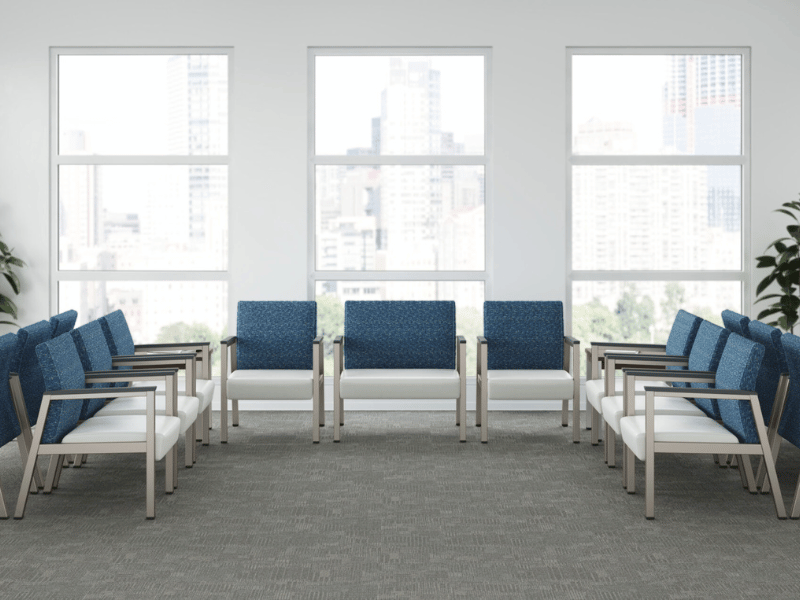Selecting laboratory chairs may seem straightforward, but the decision can have lasting effects on employee comfort, regulatory compliance, and your facility’s budget. When working in scientific or technical environments, equipment must be built to endure demanding conditions while supporting health and productivity. Yet, many organizations underestimate the complexities of choosing the right manufacturing partner.
A reliable laboratory chair manufacturer can help you avoid costly mistakes and ensure your seating solutions perform as expected over the long term. However, overlooking key factors during the selection process often leads to frustrations such as delays, quality issues, and unexpected costs.
Here are the most common pitfalls—and strategies to avoid them.
Overlooking Compliance and Certification Requirements
One of the biggest mistakes buyers make is assuming all laboratory chairs meet the same regulatory standards. In reality, labs often have very specific requirements related to:
- Cleanroom certifications (ISO Class 3–8)
- Antimicrobial or chemical-resistant materials
- Fire safety and flammability ratings (CAL 117, BS 7176)
- ESD (electrostatic discharge) protection for electronics work
If you don’t verify certifications upfront, you risk buying chairs that fail inspections or expose your organization to liability. Always request documentation to confirm compliance with relevant standards and regulations before placing an order.
Focusing Solely on Price
Budget constraints are a reality in any facility, but selecting the lowest-cost option can backfire. Cheap chairs often use inferior materials, lack robust testing, or have limited warranties. Over time, you may pay more due to:
- Premature failures or breakage
- Higher maintenance and replacement costs
- Downtime disrupting lab workflows
Instead of focusing exclusively on unit price, evaluate the total cost of ownership. A higher-quality chair with a longer lifespan and stronger warranty often proves more cost-effective.
Ignoring Ergonomic Considerations
Labs involve repetitive tasks, long shifts, and precision work. Poor seating can contribute to fatigue, back pain, and musculoskeletal disorders. A common pitfall is choosing chairs that look suitable but lack proper ergonomic adjustability. Essential ergonomic features to look for include:
- Height and depth adjustments
- Adjustable lumbar support
- Contoured seats and backrests
- Footrings or armrests when needed
Before you buy, consider arranging a sample or demonstration to evaluate comfort and adjustability in real-world conditions.
Underestimating Environmental Demands
Laboratory environments are tougher on furniture than many other workplaces. Chairs may be exposed to:
- Strong disinfectants or corrosive chemicals
- Frequent cleaning and sanitation cycles
- High humidity or temperature fluctuations
If you don’t specify the environmental requirements during discussions, the manufacturer may recommend a standard chair not designed for your conditions. Always clarify how the chairs will be used, what cleaning protocols are followed, and whether you need specialized materials or finishes.
Assuming All Manufacturers Offer the Same Customization Options
Not every manufacturer has the capability to customize chairs to your specifications. Some suppliers primarily offer off-the-shelf solutions with limited flexibility. If you require:
- Custom upholstery colors or branding
- Non-standard height ranges
- Unique ergonomic configurations
Make sure your manufacturer has proven experience producing customized seating and can meet your design and compliance needs.
Failing to Clarify Lead Times and Delivery Terms
Supply chain issues and production delays can derail even well-planned projects. One common mistake is assuming standard lead times will fit your schedule without confirming details. Before committing, always ask:
- What is the expected lead time for production and delivery?
- Are there extra charges for expedited shipping?
- Is on-site assembly or installation included?
Get clear, written commitments so your project timeline stays on track.
Overlooking After-Sales Support and Warranty Coverage
Many buyers only consider warranties after problems arise. However, understanding support terms before purchase is essential. Verify:
- Length and coverage of the warranty
- What is considered normal wear and tear
- Whether replacement parts are readily available
- How service or repairs are handled
A reputable manufacturer will stand behind their products and provide clear support policies.
Skipping a Thorough Supplier Evaluation
Finally, failing to vet your supplier can lead to disappointment. Look for evidence of:
- Experience serving laboratories similar to yours
- Positive reviews or client references
- Certifications such as ISO 9001 for quality management
- Transparent manufacturing and testing processes
Choosing an established manufacturer with a strong track record reduces risk and ensures you receive dependable, compliant products.
Conclusion
Laboratory seating is a long-term investment that impacts safety, performance, and staff well-being. By understanding and avoiding common pitfalls—like overlooking compliance, undervaluing ergonomics, or failing to clarify warranties—you can confidently choose a laboratory chair manufacturer who meets your expectations.
Taking the time to evaluate suppliers carefully, specify your requirements, and verify credentials will help you build a more productive, compliant, and comfortable lab environment.

